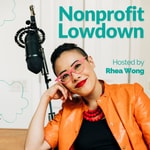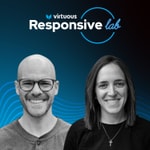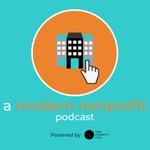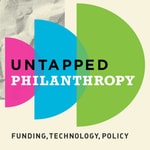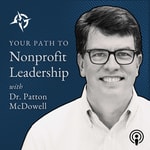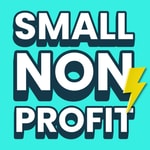The Fundraising Talent Podcast – Details, episodes & analysis
Podcast details
Technical and general information from the podcast's RSS feed.
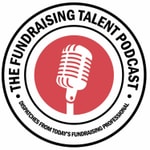
The Fundraising Talent Podcast
Jason Lewis
Frequency: 1 episode/7d. Total Eps: 114

Recent rankings
Latest chart positions across Apple Podcasts and Spotify rankings.
Apple Podcasts
🇺🇸 USA - nonProfit
27/07/2025#67🇺🇸 USA - nonProfit
18/07/2025#93🇺🇸 USA - nonProfit
07/07/2025#70🇺🇸 USA - nonProfit
02/07/2025#96🇺🇸 USA - nonProfit
28/06/2025#98🇨🇦 Canada - nonProfit
19/06/2025#93🇨🇦 Canada - nonProfit
18/06/2025#80🇨🇦 Canada - nonProfit
17/06/2025#75🇨🇦 Canada - nonProfit
16/06/2025#68🇨🇦 Canada - nonProfit
15/06/2025#61
Spotify
No recent rankings available
Shared links between episodes and podcasts
Links found in episode descriptions and other podcasts that share them.
See all- https://www.doyourgood.com/
331 shares
- https://www.cueback.com/
107 shares
RSS feed quality and score
Technical evaluation of the podcast's RSS feed quality and structure.
See allScore global : 48%
Publication history
Monthly episode publishing history over the past years.
Do fundraisers understand the nuances of corporate giving?
lundi 29 mai 2023 • Duration 43:54
How many prospective funders agree to meet as a simple courtesy only to pass up the opportunity that has been presented to them? What if a better understanding of how corporations go about their decision-making processes could reduce the fundraiser’s workload and increase the likelihood of winning a corporation’s support? These are the kind of questions that today’s conversation with Lori raises. Lori reminds nonprofit leaders that, while they certainly see their cause as a top priority, unless they have caught the attention of their prospective funders in a meaningful way, they’re simply one of many items on a to-do list that never stops growing.
Lori is the author of The Boardroom Playbook: The Not So Ordinary Guide to Corporate Funding for Your Purpose Driven Organization. Lori’s book is an effort to ensure that nonprofit leaders don’t knock on the doors of corporate funders without first making sense of the dynamics that play out among those on other side of the table. Lori is the founder and CEO of Growth Owl, LLC, a consultancy aimed at empowering nonprofits, startups, and associations with the tools needed to achieve their fundraising goals. Before bombarding our prospective corporate funders with exhausting proposals, Lori wants nonprofit leaders to avoid the drama, design brevity in their communications, and understand the nuances of corporate giving.
The Fundraising Talent Podcast is underwritten by Responsive Fundraising, a professional learning community committed to helping clients create places where fundraising can thrive. For more information, message our managing partner, Michael J. Dixon.
This is a public episode. If you would like to discuss this with other subscribers or get access to bonus episodes, visit fundraisingtalent.substack.com
Are nonprofits relying on too much play-it-safe fundraising?
dimanche 28 mai 2023 • Duration 42:08
Angie’s journey as a writer has always been about making sense of leadership, taking risks, and helping people realize their potential. Her latest book, Bet On You, is about demystifying what it means to take risks and seeing risk as the path to opportunity rather than getting anxious and worried about what might come of our decisions. Today’s conversation with Angie reminds me of what we just heard from our previous guests: those who dare to make the boldest asks are those who achieve the most extraordinary results.
Our conversation has us grappling with the question of whether nonprofits are reliant on too much play-it-safe fundraising. Angie wants us to remember that there comes a time when playing it safe no longer works. How many of our organizations have been checking all the right boxes and playing by the rules only to realize that we’re not achieving our goals and would really enjoy more fun and excitement in our work. Angie suggests that, when we get to this point, we have to look at risk as an opportunity to lean into rather than an impediment to fear and avoid.
The Fundraising Talent Podcast is underwritten by Responsive Fundraising, a professional learning community committed to helping clients create places where fundraising can thrive. For more information, message our managing partner, Michael J. Dixon.
This is a public episode. If you would like to discuss this with other subscribers or get access to bonus episodes, visit fundraisingtalent.substack.com
Are all of us being more intentional about the decisions we make?
mercredi 15 février 2023 • Duration 40:56
Lauren wants to remind us that “regrets don’t really solve problems, but taking action will”; and that “it’s never too late to try.” She wants to encourage us to start being more intentional about who and where we want to be in the world and to confidently take the necessary steps towards moving in that direction. Dissatisfied with where they found themselves, Lauren and her family recently made the decision to relocate to Charlotte, NC, a place that aligned with particular interests and hobbies, afforded a more progressive political scene, and was more responsive to the priorities of young Black professionals.
Coincidentally, today’s podcast conversation with Lauren is in many ways a continuation of the one we enjoyed with Nancy last week. These two conversations, both centered on intentionality, beg the question of just how many of us are finding ways to be more deliberate about the decisions we make. Perhaps The Great Recession and experiences like the pandemic, the murder of George Floyd, and recent elections have shaken us up, compelling us to evaluate what matters most to us and where we want to prioritize our time, energy, and resources.
That said, to make these observations about our own experiences while failing to consider the experiences of those on the other side of a charitable gift exchange is to have a bad read on the moment in time in which we are collectively living. Today’s conversation with Lauren challenges us to ask ourselves what we are doing to ensure that our donors, who are being more intentional, selective, and discerning about the choices they make, are making the decision to support our organizations over all the others that are packed into their mailboxes and inboxes.
As always, we are grateful to our friends at CueBack for sponsoring The Fundraising Talent Podcast.
ARCHITECT Brand + Design Collective is a strategy development firm focused on community-centered and diverse philanthropy, leveraging the best practices in storytelling, strategic marketing and inclusive fundraising strategies. To learn more, visit www.architectyourambition.com to learn more
The first stop for 2023 on the Responsive Fundraising Roadshow will be in Omaha, Nebraska on Friday, March 3rd in partnership with the Nonprofit Association of the Midlands. If you’d like to register for this event, just visit their website at here.
We’re trying something new. The Butterfly Effect, our new publication on Substack, is where we make sense of the ideas and opinions that inform our consulting practices at Responsive Fundraising. Every week we will guarantee for our subscribers a thoughtful, long form article that will challenge how we think about contemporary fundraising practices. We would be delighted if you would subscribe.
This is a public episode. If you would like to discuss this with other subscribers or get access to bonus episodes, visit fundraisingtalent.substack.com
260 | What happens when “warm glow” fundraising plateaus?
samedi 26 juin 2021 • Duration 54:56
Our recent conversation with Sandi Bliss caught Tammy’s attention. Our discussion reminded Tammy of some of the observations she made earlier in her career while supervising a team of fundraisers. Tammy observed that once her team no longer had something tangible to “sell,” they began to feel like impostors and didn’t quite know how to negotiate more complex and long-term giving opportunities.
Tammy’s team found themselves at the place where transactional fundraising plateaus and where every attempt at selling the same “warm glow” becomes increasingly more difficult. Being stuck here means donor attrition sky rockets, fundraisers quit, and acquisition costs go out the roof. At Responsive, we call this transition point the messy middle lane, the place where a more meaningful gift reflects one’s genuine commitment to and confidence in the mission rather than the naive and impulsive assumption that they’re single-handedly changing the world.
Tammy wanted her team to experience fundraising as meaningful work. And she wanted her team to experience a different kind of conversation with their donors, the sort that only some fundraisers ever learn how to have. These aren’t conversations about “what’s in it for me”; it’s not about selling a tote bag or a tee sponsorship, or putting a name on the side of building. It’s about being a citizen rather than a consumer.
As always, we are grateful to our friends at CueBack for sponsoring the Fundraising Talent Podcast. And, if you’d like to learn more about hosting the Responsive Fundraising Roadshow in your community, email me at [email protected]
Reminder, you can download Responsive’s latest edition of Carefully & Critically here.
This is a public episode. If you would like to discuss this with other subscribers or get access to bonus episodes, visit fundraisingtalent.substack.com
259 | Has your boss demonstrated their willingness to invest in fundraising?
mardi 22 juin 2021 • Duration 58:59
When meeting with a client, Sherry doesn’t go straight to fundraising tactics. Instead, in order to understand whether an organization is up to the task of achieving its goals, she begins by asking some probing questions. This often starts with knowing how much money needs to be raised, as opposed to some vague and arbitrary numbers, and whether there is a willingness to dedicate the resources necessary. As Sherry points out, a lot of us are signing on for jobs where the expectation is nothing more than to tell stories and ask for money. That’s not how it works.
In the midst of all this talk about “the great resignation,” my conversation today with Sherry raises the question of why some fundraisers are signing on to work for bosses who don’t really get fundraising and perhaps have no intention of ever trying to. Before we accept an offer, perhaps we should discern whether the boss is committed to investing in fundraising. Sherry insists, and I concur, that fundraisers need to be confident saying, “No. We can’t raise more money on less, we can’t do it without spending, we can’t do it with half as many staff, and we can’t have such high expectations of our donors without also having higher expectations of ourselves; that’s just not feasible.”
As always, we are grateful to our friends at CueBack for sponsoring the Fundraising Talent Podcast. And, if you’d like to learn more about hosting Responsive’s Roadshow in your community, email me at [email protected]
Reminder, you can download Responsive’s latest edition of Carefully & Critically here.
This is a public episode. If you would like to discuss this with other subscribers or get access to bonus episodes, visit fundraisingtalent.substack.com
258 | Is the talk of decolonizing philanthropy misdirecting our attention?
samedi 19 juin 2021 • Duration 50:42
As a Latinx fundraiser for thirty-five years, Armando has earned the right to have an opinion or two about the challenges we’re facing in today’s nonprofit sector and he believes that, in many ways, we’re missing the point in some of our most heated debates. Armando insists that if decolonizing philanthropy is our goal, it’s not going to happen by focusing on large foundations. We’ve got to remind ourselves what we’re all told in fundraising 101: foundations have never been where the real sustainable opportunities are and never will be. What’s worse, convincing ourselves that in some way the powers that be behind these large foundations will just hand over their power, influence, and assets is simply naive.
Armando wants to remind us that these supposed powerhouses of philanthropy only account for a small fraction of what’s actually contributing to our sector and that they don’t hold nearly as much clout as some would like us to think. While their size, stature, and political influence may be intimidating, their financial impact is considerably less when compared to what individuals are capable of giving. Foundations account for just 18 percent of the money going to charity whereas individuals give upwards of 70 percent every year. To decolonize philanthropy by any definition, we’re going to have to recognize that the real opportunities exist at the lunch table interacting with individuals, not applying for grants from institutions. And to make the types of changes that the loudest voices in our space are calling for, Armando insists that fundraising professionals are going to have to recognize the power that they already have rather than asking someone else to give it to them.
As always, we are grateful to our friends at CueBack for sponsoring The Fundraising Talent Podcast. And, if you’d like to learn more about hosting Responsive’s Roadshow in your community, email me at [email protected]
.
This is a public episode. If you would like to discuss this with other subscribers or get access to bonus episodes, visit fundraisingtalent.substack.com
257 | How much of fundraising’s pre-pandemic playbook are we throwing out?
jeudi 17 juin 2021 • Duration 49:22
Today’s conversation with Jeff at EAB was fascinating to say the least. Our conversation, informed significantly by the research that Jeff and his team have either conducted or been a part of, centered around the question of how much of fundraising’s pre-pandemic playbook we are going to throw out and what are we going to keep. Jeff shared with me that the traditional advancement models we see in higher education, largely predicated on alums willingness to show up and agreeing to participate, hasn’t been showing signs of improvement for quite some time. He explains that these aspects of fundraising has been on an unsustainable path for quite some time and that the pandemic simply forced many of us to confront this reality.
Jeff explained that many of our challenges on the road ahead will surface simply because our inability to work out the economics. I suppose what was most encouraging to hear was how much opportunity is actually out there if we are willing to adapt, evolve and experiment with different ways of doing things. For example, Jeff noted that the number of major gift donors who, at many institutions, never receive any meaningful engagement reaches into the thousands simply because of their geographical dispersement and the immediacy with which we expect our efforts to pay off. In between the lines of what I hear in a conversation like this is an opportunity for fundraising to experience a real growth spurt and to perhaps become more exploratory work.
As always, we are grateful to our friends at CueBack for sponsoring the Fundraising Talent Podcast. And, if you’d like to learn more about hosting the Responsive Fundraising Roadshow in your community, email me at [email protected]
Reminder, you can download Responsive’s latest edition of Carefully & Critically here.
This is a public episode. If you would like to discuss this with other subscribers or get access to bonus episodes, visit fundraisingtalent.substack.com
256 | Fundraisers, is that really your story to tell?
vendredi 11 juin 2021 • Duration 40:57
As is customary on the podcast, we have thought provoking conversations that give us hope of one day arriving at more enlightened fundraising practices. Well, today’s conversation really had us moving in that direction; and I am really grateful to Cathy for being our provocateur today. Cathy helps organizations raise money in difficult places, for causes that don’t always make for the easiest of stories to tell, and I appreciate her for challenging our thinking about where storytelling makes sense and where it doesn’t.
The questions Cathy had us contemplating were whether fundraising professionals are necessarily entitled to tell the stories of those we serve and in what cases our expectations might cause unintentional harm. With all the Storytelling going on, it’s a fair question. When should someone’s story, perhaps one that involves unresolved trauma and abuse, be off limits even when told with the best of intentions?
As always, we are grateful to our friends at CueBack for sponsoring the Fundraising Talent Podcast. And, if you’d like to learn more about hosting the Responsive Fundraising Roadshow in your community, email me at [email protected]
Reminder, you can download Responsive’s latest edition of Carefully & Critically here.
This is a public episode. If you would like to discuss this with other subscribers or get access to bonus episodes, visit fundraisingtalent.substack.com
255 | What could fundraisers achieve if they took the indirect route?
mardi 8 juin 2021 • Duration 47:25
My conversation with Karl immediately reminded me of the brilliant little book, Obliquity, by LSE and Oxford professor John Kay, who makes the argument that our goals are best achieved indirectly. While counterintuitive, Kay explains that the most successful, most profitable enterprises don’t focus on profits or shareholder value. Arguably, this is a lesson fundraising hasn’t learned. Far too much of contemporary fundraising adheres to a direct approach, and I would venture to say that our fundraisers suffer the brunt of this truth. The direct approach convinces us that our attention should be narrowly focused on donors and dollars.
Karl has developed an appreciation for the indirect route in real time, discovering that being embedded in his community in a variety of ways makes for opportunities that he wouldn’t otherwise encounter. The oblique approach has taught him to trust the process and to not to become overly anxious when things diverge from where he thought they were headed. Karl has learned that fundraising at best is exploratory work; that it rarely goes according to our plans; and that, like everything that involves living, breathing human beings, it’s going to be messy and unpredictable.
As always, we are grateful to our friends at Cueback for their support of The Fundraising Talent Podcast. And, if you’d like to learn more about hosting Responsive Fundraising’s roadshow in your community, let’s coordinate a call.
#unpredictable #responsivefundraising
This is a public episode. If you would like to discuss this with other subscribers or get access to bonus episodes, visit fundraisingtalent.substack.com
254 | Do the guardians of donor-centered fundraising have a bit of a PR problem?
jeudi 3 juin 2021 • Duration 58:34
It sounds as if donor-centered fundraising might have a bit of a PR problem, and Scott’s got the data to explain why. A couple of months ago, Scott launched a poll which asked, is "donor-centric" fundraising on its way out? While the poll results may not be all that surprising, a close look at the participants behind the responses tell an interesting story. Among those participating in Scott’s poll, the guardians of donor-centered fundraising tend to be older, white men working for large institutions.
As I listened to Scott’s reflections on his findings, it is apparent that the comments that followed challenged him to think more critically about what these various ideologies mean and how they inform his work. While desiring to remain true to his values, he’s evidently teachable and pays attention to what those on the other side are saying. Scott strikes me as similar to a lot of the fundraisers that I talk to: not at all about the buzzwords that experts notoriously conjure up for scoring keynotes and contracts, they are after an opportunity to be recognized and admired for meaningful work by their boards, bosses and colleagues down the hall.
As always, we are grateful to our friends at CueBack for sponsoring the Fundraising Talent Podcast. If you’d like to learn more about hosting the Responsive Fundraising Roadshow in your community, email me at [email protected]
Reminder, you can download Responsive’s latest edition of Carefully & Critically here.
This is a public episode. If you would like to discuss this with other subscribers or get access to bonus episodes, visit fundraisingtalent.substack.com

